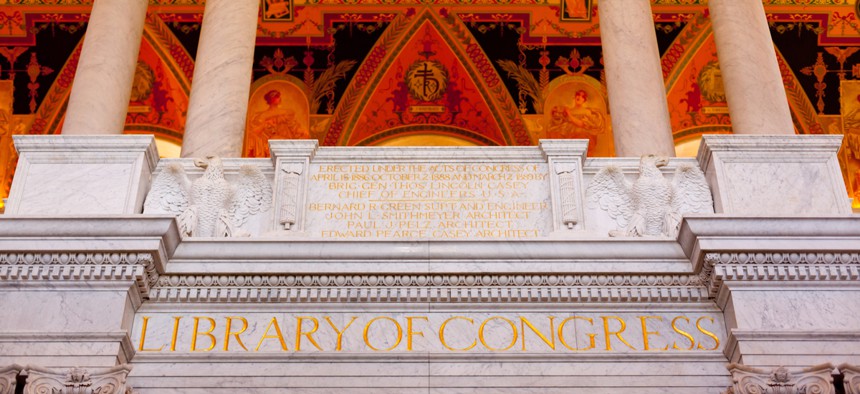A New Bill on Copyright Law Would Take Power from the Library Of Congress and Give it to Trump
There's a quiet battle for power brewing.
US copyright laws are severely outdated, and it looks like lawmakers are finally taking action. Thursday, a bipartisan bill was introduced in the House of Representatives that proposes to change the country’s head of copyright from someone appointed by the Library of Congress, to someone picked by the president.
The register is the head of the US Copyright Office, part of the Library of Congress, and gives out copyright licenses and oversees their protection. She also acts as an advisor to Congress on questions around copyright. The bill stipulates that the new appointee will need Senate approval, that the office will have a 10-year term (right now the law doesn’t specify a term length), and that the president can remove the director.
The copyright laws that last saw a major overhaul in 1976 currently have no clear leader. The next copyright register should be selected by Carla Hayden, who was appointed by Barack Obama and is the first African American and first woman to oversee the Library of Congress. Three months after taking office in July last year, she fired the then-copyright register, Maria Pallante. Karyn Temple Claggett is the current acting register.
The internet has a clear copy-paste problem, so whoever oversees the copyright office will have a big job ahead of her. As more and more people can simply rip off the writing, art, and photography of others online, and disseminate them without credit around the world in a matter of minutes, copyright has become an increasingly important and thorny matter. Even jokes, and who owns them, pose a big intellectual property problem today.
The majority of the US’ current copyright laws were written in 1976. In 1998, lawmakers tried to address some of the problems of mass digitization and distribution through the Digital Millennium Copyright Act, but the act relies heavily on takedown notices issued after copyrighted material has already been disseminated.
Since 2013, the US congress has been reviewing copyright law and making snail-paced progress, punctuated with musical tours of Nashville, Tennessee. Now, they may be taking advantage of a time of political upheaval to gain more oversight over the copyright register.
“When it comes to copyright policy you’ve got different stakeholders, and it’s important that, whoever is in that position, we have an idea, we have a chance to vet them,” says a spokesperson for Senator Chuck Grassley, who helped introduce the bill. “We’ll have greater transparency, greater accountability, and ensure the person leading the copyright office will take into account all of the different considerations.”
If the law passes, it’s not clear what kind of appointee Donald Trump would want for the office. Though not known as a close friend of writers and artists, he is a master of trademark. That could mean he would appoint someone who favors strong protection for copyrighted material. In December, the American Publishers Association wrote an open letter to him, expressing optimism that he could be an ally. Earlier that year, nearly 150 representatives of Silicon Valley, which tends to favor digitization and the free flow of information, had also published a letter of concern about Trump’s tendency toward trademark:
His vision stands against the open exchange of ideas, free movement of people, and productive engagement with the outside world that is critical to our economy — and that provide the foundation for innovation and growth.
It may be some time before the bill gets through, but this law would make it possible for Congress to remove any appointment made by Hayden between now and then. A spokesperson for the library notes that “ensuring an effective and efficient copyright office remains the responsibility and priority of the librarian”—presumably even with a president-appointed register.



